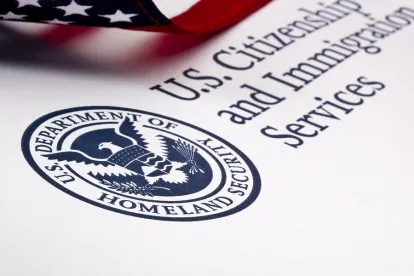Travel to the U.S. – Suspensions and Restrictions
The White House has published two Coronavirus Disease 2019 (COVID-19)-related proclamations relating to travel to the United States:
-
Jan. 31, 2020: Proclamation 9984, Proclamation on Suspension of Entry as Immigrants and Nonimmigrants of Persons who Pose a Risk of Transmitting 2019 Novel Coronavirus. The proclamation cites Immigration and Nationality Act (INA) 212(f) to suspend entry into the United States of all aliens (immigrants, nonimmigrants, and other non-U.S. citizens) who were physically present within the People’s Republic of China, excluding the Special Autonomous Regions of Hong Kong and Macau, during the 14-day period preceding their entry or attempted entry into the United States. This coronavirus travel ban is effective as of 5:00 p.m. EST on Feb. 2, 2020.
-
Feb. 29, 2020: Presidential Proclamation, Proclamation on the Suspension of Entry as Immigrants and Nonimmigrants of Certain Additional Persons Who Pose a Risk of Transmitting Coronavirus. The proclamation cites INA 212(f) to suspend entry into the United States of all aliens (immigrants, nonimmigrants, and other non-U.S. citizens) who were physically present within the Islamic Republic of Iran during the 14-day period preceding their entry or attempted entry into the United States. This coronavirus travel ban is effective as of 5:00 p.m. EST on March 2, 2020. This proclamation does not apply to persons aboard a flight scheduled to arrive in the United States that departed prior to 5:00 p.m. EST on March 2, 2020.
The proclamations provide that the travel bans do not apply to any foreign national who is:
-
a lawful permanent resident of the United States;
-
a spouse of a U.S. citizen or lawful permanent resident;
-
a parent or legal guardian of a U.S. citizen or lawful permanent resident, provided that the U.S. citizen or lawful permanent resident is unmarried and under the age of 21;
-
a sibling of a U.S. citizen or lawful permanent resident, provided that both are unmarried and under the age of 21;
-
a child, foster child, or ward of a U.S. citizen or lawful permanent resident, or a prospective adoptee seeking to enter the United States pursuant to the IR-4 or IH-4 visa classifications;
-
an alien traveling at the invitation of the United States government for a purpose related to containment or mitigation of the virus;
-
C (transit) or D (air or sea crewmember) nonimmigrants;
-
seeking entry into or transiting the United States pursuant to an A-1, A-2, C-2, C-3 (as a foreign government official or immediate family member of an official), G-1, G-2, G-3, G-4, NATO-1 through NATO-4, or NATO-6 visa;
-
an alien whose entry would not pose a significant risk of introducing, transmitting, or spreading the virus, as determined by the CDC Director or his designee;
-
an alien whose entry would further important United States law enforcement objectives, as determined by the Secretary of State, the Secretary of Homeland Security, or their respective designees based on a recommendation of the Attorney General or his designee; or
-
an alien whose entry would be in the national interest, as determined by the Secretary of State, the Secretary of Homeland Security, or their designees.
For foreign nationals not excluded by the ban, the proclamations direct the Secretary of Homeland Security to establish standards and procedures at and between all U.S. ports of entry to regulate the travel of persons and aircraft to the United States to facilitate the orderly medical screening and, where appropriate, quarantine of persons who enter the United States and who may have been exposed to the virus. “Such steps may include directing air carriers to restrict and regulate the boarding of such passengers on flights to the United States.” See Proclamation 9984.
Closures of USCIS/DHS/DOS offices
-
Update – U.S. Embassy and Consulates General in China Suspended Regular Visa Services as of Feb. 3
-
U.S. Consulate General in Milan Will Temporarily Suspend Its Routine Visa Services (also in Italian)
-
Immigration Issues for Chinese Travelers to the United States During the Coronavirus Outbreak
-
Important Update on Visa Rescheduling Due to the Coronavirus
-
On March 3, Acting Deputy Secretary Ken Cuccinelli tweeted, “DHS learned that an employee at the @USCIS Seattle Field Office started exhibiting flu-like symptoms four days after visiting the nursing home in Kirkland, Washington that has seen numerous COVID-19 cases. The employee had been coming to work in the intervening days between the possible exposure (Feb. 22) and becoming ill (Feb. 26). In an effort to contain the threat of potential spread & out of an abundance of caution, the @USCIS Seattle Field Office was ordered closed.”
Questions and Answers
Question: Should employers allow sponsored employees to travel for visa interviews?
Answer: If a sponsored employee would like to travel to obtain a new visa stamp, it would be best first to check with the consulate to be certain they are open and scheduling interviews. If travel isn’t required in order to maintain an employee’s status, it might be best to postpone that travel for visa purposes.
Q: What risk does a sponsored employee have when traveling for business or immigration purposes?
A: Sponsored employees risk being denied re-entry to the U.S. anytime they leave and attempt to re-enter. Certainly, employees originally from countries under U.S. travel restrictions should be mindful of the risks of leaving the U.S. and being unable to re-enter in a timely manner.
Q: Are additional travel bans likely? South Korea/Italy?
A: It is possible that, as the impact of the virus is felt in other regions of the world, the Trump administration will impose additional travel restrictions. We will closely monitor.
Q: Are employers required to pay H-1B employees when the employees are unable to perform their job duties due to an emergency, such as a quarantine?
A: As of now, DHS and DOL have not issued any specific guidance regarding this issue. We will continue to monitor and let you know immediately if the government provides any relevant updates.
For planning purposes, based on the regulations, the company would most likely have to continue to pay H-1B workers in the event of a quarantine, etc. The following principles apply:
-
The employer is generally liable for nonproductive time as well as productive time, once an H-1B employee becomes eligible for work. Since the downtime would not be employee-specific, i.e., only affecting employees who become sick, etc., the liability is the employer’s, who would need to continue to pay the H-1B worker.
-
If accommodations are made and H-1B employees are given work unrelated to their normal positions, the employer must still pay the wage based on the occupation listed on the LCA. The employer might not be required to amend the H-1B petition in such an emergency situation.
-
There are exceptions to the requirement to pay when an H-1B employee is unwilling to work or requests a leave of absence for a personal reason. However, these situations are employee-driven and employee-specific. Further, the Americans with Disabilities Act, the Family and Medical Leave Act (FMLA), and related legal provisions may require employers to offer unpaid leave or other accommodations. We recommend that you also confer with employment counsel on these issues.
Q: How should employers handle H-1B, E-3 petitions, and PERM filings that need a posting notice to go up at the worksite?
A: While we are waiting for guidance from USCIS, an option is to post electronically on the intranet so long as every employee has access to it; if this practice is used, it should be used across the board.
Q: If the physical office is closed, or employees are not required to travel, how do we prepare for an I-9 for an employee who is allowed to start working from home?
A: We are also awaiting guidance from USCIS, but if the office is closed or the employee will not travel, resulting in the employer not examining documents in person, USCIS does allow the option to utilize a notary or appoint an agent to complete the I-9 so the documents can be examined. If there are further issues, please contact your GT attorney. See Completing Form I-9 for Remote Hire.
Q: What if my intra-company transferee employee needs a renewal, and the home country is one the countries affected?
A: While third-country national processing is available at some U.S. consulates closer to the United States (Canada, Mexico, Barbados), please check availability, as this option may not be feasible due to demand. Please also check whether your employee will need a visa to enter the other country.
Another option is to file an extension petition through USCIS. Some employees may need an approval to extend their driver’s license, for example. Note that if the employee travels internationally and does not have a valid visa, he/she will still need to obtain this at a U.S. consulate abroad.
Q: Where can I check for travel advisories if my employee would like to travel and would like to assess the threat level?
A: The U.S. State Department issues travel advisories and updates them on a constant basis.




 />i
/>i

